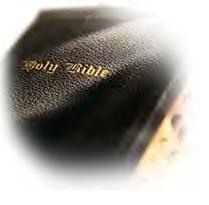
When the apostle Peter preached the first gospel sermon, recorded in Acts 2, those who heard him were "cut to the heart." Realizing that they had crucified the son of God, they asked Peter, "What shall we do?" Peter's response, albeit very simple and easily understandable, is the crux of much religious confusion and argument: "Repent and be baptized every one of you in the name of Jesus Christ for the forgiveness of your sins, and you will receive the gift of the Holy Spirit" (Acts 2:38).
Peter clearly teaches that baptism is "for" (unto) the forgiveness of sins. But this isn't the only passage that addresses the purpose of baptism.
Jesus instructed his apostles to "Go into all the world and proclaim the gospel to the whole creation. Whoever believes and is baptized will be saved, but whoever does not believe will be condemned" (Mark 16:16).
Peter writes, "Baptism, which corresponds to that, now saves you...." (1 Peter 3:21).
ARGUMENTS
The major argument against the necessity of baptism is that doing so attempts to earn salvation. This is a false conclusion.
Paul writes in Ephesians 2:8,9, "For by grace you have been saved through faith. And this is not your own doing; it is the gift of God, not a result of works, so that no one may boast." God is not nor ever could be indebted to mankind because of anything we have ever done or could do. The gift of salvation is based on God's grace and love. Considering that God's grace was extended to mankind while we were "dead in our traspasses" (Eph. 2:5), how could anyone claim that man "earned" God's gift?
Peter points out that baptism doesn't cleanse man's outer body in 1 Peter 3:21, "Not as a removal of dirt from the body..." Instead, baptism is "an appeal to God for a good conscience, through the rescurrection of Jesus Christ..." There is nothing magical about the water. The power rests in God. Naaman was told to wash in the Jordan seven times in order for his flesh to be healed of leprosy (2 Kings 5:10-14). Did the water have magical powers that cleansed the disease from Naaman's skin? No. After Naaman obeyed the command, his "flesh was restored like the flesh of a little child, and he was clean" (2 Kings 5:14).
Similarly, when we submit to God's command to be baptized for the forgiveness of sins, God -- not the water -- cleanses our soul.
Romans 6 describes baptism as the point in which we re-enact Christ's death, burial, and resurrection: "Do you not know that all of us who have been baptized into Christ Jesus were baptized into his death? We were buried therefore with Him by baptism into death, in order that just as Christ was raised from the dead by the glory of the Father, we too might walk in newness of life" (vs. 3, 4).We do not raise ourselves to a new life, God does. Colossians 2:12 says, "having been buried with Him in baptism, in which you were also raised with Him through faith in the powerful working of God, who raised Him from the dead."
We believe we have been raised to walk in newness of life after baptism -- not because of anything we have done -- but based on our faith in the powerful working of God!
(To be continued)


No comments:
Post a Comment